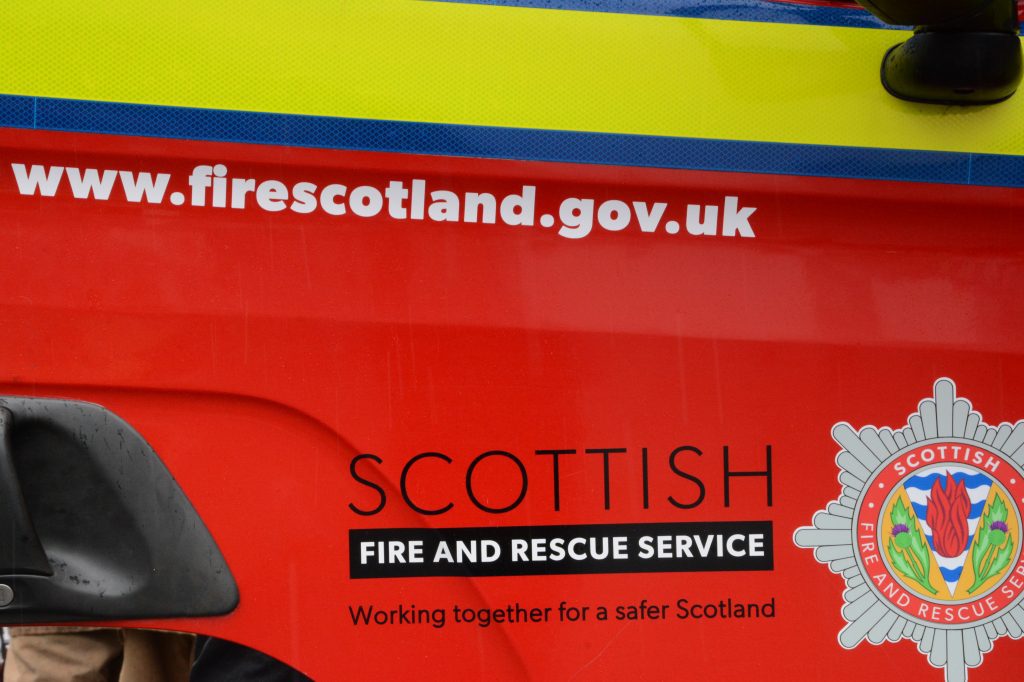Two men were taken to hospital after a motorway collision between two heavy goods vehicles in Dumfries and Galloway this morning (Thursday 31 July).
Scottish Fire and Rescue Service (SFRS) crews were mobilised from Annan, Gretna and Lockerbie – along with the incident support vehicle from Dumfries – shortly before 11:30am in response to a request for assistance from Police Scotland.
The incident occurred as one of the lorries was stationary on the hard shoulder of the northbound M74 at junction 19 near Ecclefechan.
It resulted in one man being trapped in the cabin of his jack-knifed vehicle and another being thrown over the crash barrier and down an embankment at the side of the carriageway.
Watch Manager Phil Birkett, the incident commander, said: “When we arrived one of the casualties was already in the care of the ambulance service and police and highways agency officers had implemented an excellent scene-safety operation.
“Our firefighters immediately began work to stabilise the HGV with the trapped driver and ensure he was safely released.
“The position of the cabin meant our crews were operating in difficult circumstances. We were also working very closely with paramedics to care for the casualty throughout the road rescue.
“Hydraulic cutting equipment was used to create an opening in the driver-side door, which we were then able to get the casualty out through.”
Both men were taken to Dumfries and Galloway Royal Infirmary by road ambulance.
The SFRS crews from Lockerbie, Annan and Gretna serve their communities as firefighters on the retained duty system (RDS), which means they come from other walks of life to protect the areas where they live and work.
These firefighters also commit to attending weekly training sessions – known as drill nights – at their local station, which develops and maintains the specialist skills modern fire and rescue crews need.
An annual retainer fee – starting at £2,137 – is paid in return for their service, together with additional payments for every incident and training night they attend.
Rural and remote communities throughout Scotland rely on RDS crews who live and work close to their local fire station.
SFRS wants to hear from anyone interested in becoming an RDS firefighter and the service believes there may be men or women who are at home while their children are at school who could potentially provide cover during daytime hours.
This specific approach has already been used in Wales where it saw a positive response from the public.
To find out more about becoming a local hero visit the SFRS website www.firescotland.gov.uk, or to complete an application form to join the RDS, visit www.myjobscotland.gov.uk and search for ‘Scottish Fire and Rescue Service’.





